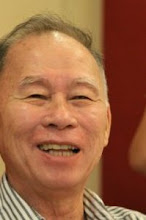6/12/15 - In today’s news when we are celebrating our 117th Independence Day, many are hailing our sports heroes who are proudly carrying the Philippine flag. The latest is that we have 22 gold medalists in the ongoing South East Asian games good for 7th place.
Courage, idealism and death were the stuff of life for Filipinos circa 1892-1900. Intense revolutionary spirit was the fire in the belly of most citizens.
Gen. Emilio Jacinto was wounded in 1899 in the battle of Maimpis river in Majayjay, Laguna. Bleeding badly, the general was brought to the nearby convento of Magdalena. General Jacinto survived his wounds but died of malaria that same year. He was only 23, a bold warrior and a keen intellectual who acted as the brains of the Katipunan.
José Rizal, the brilliant novelist-propagandist, established in 1892 the La Liga Filipina movement for reforms, while the fiery Andres Bonifacio founded the Katipunan for armed rebellion.
In December 1941 right after Japanese fighter planes bombed Pearl Harbor and Clark Field in Pampanga, ushering World War II in the Philippines, Phil-American forces were tasked to repel the Japanese invaders. A lot of our young men in ROTC uniforms volunteered to go to war. With regular Filipino and American soldiers, these college students were ordered to make the last stand in the jungles of Bataan and the tunnels of Corregidor. They fought a war they couldn’t win because of superior enemy forces on land, sea and air. Heroes all . . .
Unfortunately for us, the Philippines has also had its fair share of shadowy characters. Countless acts of treachery and turncoatism have undoubtedly darkened several chapters of our history, their after-effects still being felt even up to now.
Obviously, there are too many traitorous Filipinos to list down. Out of all the groups that collaborated with Japan during World War II, MAKAPILI became the most infamous and hated. Headed by the triumvirate of former Revolutionary General Artemio Ricarte, Pio Duran, and former Sakdalista Movement founder Benigno Ramos, the MAKAPILI came into existence after the Japanese started to conscript Filipinos to augment their military forces.
The consequences of Mabini’s lost battle to greed perpetuated among succeeding leaders in 1858 clearly hounds all Filipinos to this very day.
Tremendous discretionary power over public funds, public resources, and public policies is vested in those who capture control of government, and that power has been consolidated, increased, refined, guarded, and avariciously used over the years by the nation’s politicos for their own private and personal gain. Irrespective of any labels or party names that all the presidents, senators, congressmen, governors, mayors, and other government officials have attached to themselves over the last 156 years since, all have been joined – save only for a shamefully miniscule few heroes – by the notion that the positions they occupy are opportunities “to grasp” and not “to serve”. These valiant heroes naturally failed to perpetuate their watch to serve.
For so many years since our heroes have fallen before my eyes, the realization of a government that would actively fight graft and corruption and where corrupt judges and politicians, tax evaders, smugglers and money launderers would actively be prosecuted and punished, was just wishful thinking on the part of the Filipino people.
It seems Filipinos harbor a skewed concept of freedom.
There is now a segment of supposedly “awakened” educated Filipinos who openly state: WHY I AM NOT PROUD TO BE FILIPINO.
They say: “Filipinos think the “freedom” they supposedly earned in 1986 allows them to do whatever they want, regardless of the consequences. This “freedom” goes hand in hand with their concept of “democracy”. They just go through the motions; elect leaders whose platforms (or lack thereof) they didn’t exhaustively cross-examine, and they express shock that things come out the way they envisioned it to.
The following question remains without a convincing answer until now: Proud to be Filipino? Of what exactly?
Obviously, Filipinos have been putting the cart before the horse; they feel pride for some inexplicable thing, then they go find something to feel proud of, however small and inappropriate. But true pride comes from a society building things as a collective, from accomplishing things where each member of that society can feel happy and satisfied knowing that they had a part in building that thing or accomplishment. Not just because they share some semblance of “Filipino blood” with the entity who became successful.
If Pwede na iyan, Bahala na, and a culture of impunity are the best that Filipinos can do together, well, they get what they deserve.”
Who therefore can our grandchildren emulate to be declared our hero for the ages? My vote still remains to be with Jose Rizal.



